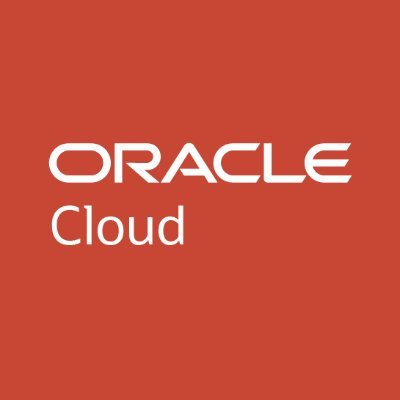Rising demand seen for secure, enterprise-grade cloud services in the country
Polycab, Religare Broking, GTPL Hathway, Omega Healthcare and Mphasis enhance cloud focus
Bengaluru, NFAPost: Oracle announced increased demand for its second-generation cloud services in the country, as more and more Indian organizations seek to drive a rapid return to growth.
Amongst those subscribing to Oracle’s best-in-class cloud applications and cloud infrastructure include Polycab, Religare Broking, Mphasis, Omega Healthcare, Nippon Life India Asset Management, GTPL Hathway, IFFCO, Lipi Data Systems, Infocepts, RXIL and ARCIL.
Stated reasons for this large-scale migration to Oracle include much better price-performance of Oracle’s second-generation cloud infrastructure vis-à-vis their experience of using cloud services from other technology providers.
Oracle’s complete cloud offerings across applications and infrastructure, and its enterprise-grade security and performance offered out of two local Cloud regions in Hyderabad and Mumbai, as well as 29 others worldwide, are also seen as critical by Indian organizations wanting to accelerate their digital journey and future-proof their business.
Oracle India Regional Managing Director Shailender Kumar said over the last 4-5 years, Oracle Cloud has doubled its overall customer base and have nearly 1,000 strategic partners in network.
“All this is a reflection of Oracle emerging as the cloud provider of choice for our customers. We are fully geared up to help organisations of all sizes and from all industries, unlock new value from their data in the New Year, aiding faster innovation and growth recovery, while enhancing their end customer experience,” said Oracle India Regional Managing Director Shailender Kumar.
Cloud drivers
GTPL-Hathway Chief Strategy Officer Piyush Pankaj said India’s second-largest cable TV company and one of the leading broadband service distribution companies in the country, said gleaning timely insights from its massive data streams was a huge challenge.
“Oracle Autonomous Database and Oracle Analytics Cloud, which are powered by artificial intelligence and machine learning, now give us the ability to perform faster, deeper analytics even on massive datasets – over 10 million records on average – in minutes. This has helped us speed up the insight-to-decision cycle significantly. By using Oracle’s cloud services, we anticipate huge cost savings in the next few years,” said Piyush Pankaj.
Religare Broking CTO Pradeep Paliwal said the company has almost minimal spend on maintenance and operations now that Religare is using Oracle Cloud ERP.
“In spite of the current challenging situation globally, our close relationship with Oracle has resulted in a smooth transition to cloud. Our primary focus has been to use cloud to give our business functions the agility and scalability they need so that our bandwidth is well leveraged for strategic business outcomes and not on managing financial and support jobs,” he said.
Long-term strategy
Pradeep Paliwal said the company strongly believes that as a long term strategy, this transformation will give the much needed spur for growth, by helping us standardize our processes on the best of breed embedded technologies without having to worry about needing to upgrade every few years.
“We foresee immense benefits and quantifiable outcomes which we just couldn’t foresee with any of the other solutions in the market,” said Pradeep Paliwal.
This focus on securing a strong digital foundation for business continuity and growth is in line with market expectations.
IDC India Cloud and Artificial Intelligence Principal Analyst Rishu Sharma said the current environment has been an accelerator for cloud adoption in India.
“As businesses look at cloud-centric digital infrastructure and applications for performance, scalability and security, organizations across industries like IT/ITeS, media, education have been at the forefront of this adoption driven by remote working, online entertainment and virtual classrooms. Mobile and digital applications including next-gen payments are driving the demand for cloud in the financial services space,” said As Rishu Sharma.
Collaboration platform
Rishu Sharma said healthcare organizations are driven by collaboration platforms and conferencing solutions for diagnosis, screening, and better collaboration.
“And this fast-tracked adoption is further disseminated across business functions. While varied functions are leveraging cloud for collaboration, improved efficiencies and business outcomes, businesses are looking at cloud as a platform for digital innovation,” said Rishu Sharma.
In addition, in the recent 2020 SaaSPath survey from IDC, which covered 1617 SaaS customers on their satisfaction with top SaaS vendors – including Oracle, SAP, Microsoft, IBM, and Salesforce – Oracle was rated among the most-trusted SaaS vendors, and scored highly on robust data security, high availability, and value – all attributes that customers rated as most important.
In addition, IDC’s latest CloudPath survey of 935 IaaS customers, shows Oracle leads in overall IaaS vendor satisfaction and had the highest gain in overall IaaS Net Promoter Score.
Increased Partner Momentum
Oracle’s nearly 1,000 channel partners in India now play a key role in driving growth in India, as part of the modernized Oracle PartnerNetwork (OPN 2020) which is enabling channel partners to prepare for a cloud-first world.
Sify Technologies is one of India’s most comprehensive Digital ICT service and solution providers. Sify Technologies CEO Kamal Nath said digitalisation has become a business prerequisite, with a move to the cloud a key path in any such transformation.
“For Oracle customers, moving to Oracle Cloud will result in significantly better performance and lower costs. With our cloud migration capabilities and investments in Cloud Adjacent Data Centres, Sify is making it easier for customers to embrace Oracle Cloud Infrastructure led hybrid cloud adoption in India,” said Kamal Nath.
Oracle offers suites of integrated applications plus secure, autonomous infrastructure in the Oracle Cloud.





